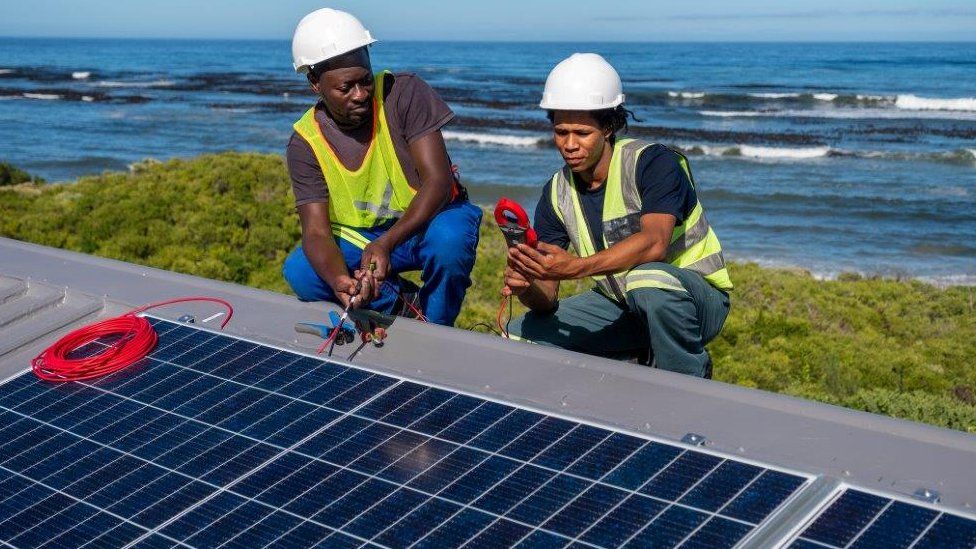On June 29, the Transformation Leadership Panel (TLP) convened to discuss the multiple urgent crises facing Africa today. At the meeting, eminent African and global leaders shared their concerns about the social, climate, and economic and political instability on the continent and called on African leaders to take control and lead a wake-up call to the international community.
KY Amoako, President and Founder of ACET, outlined the depth of the emerging crisis. African countries continue to struggle with the economic and social impacts of the COVID-19 pandemic, but their financial and economic position is now worsened by the effects of climate change, greater fragility and conflict, and an increasing debt burden. With oil and food prices surging, food insecurity is rising across the continent and financial pressures are pushing many countries into budget shortfalls that are increasingly unsustainable.
Several participants noted that it is important to recognize that this is not primarily a crisis of mismanagement. Fiscal and financial downturns faced by African people and governments are driven mainly by exogenous shocks. In the face of the Russian war in Ukraine, which has triggered a global economic shock and rising costs of fertilizer, food, and fuel, governments must provide a social safety net for their citizens. One participant suggested that African countries have sent more money to oil and food exporters in the rich world than they have been able to transfer to their own vulnerable populations.
Vera Songwe, TLP member and the Executive Secretary of the UN Economic Commission for Africa issued a stark warning to the panel: “This is not just a crisis where the poor are getting poorer. Rising costs are hitting the African middle class hard – in Nigeria, fuel costs are so high that people cannot afford to drive to work.”
Panel members agreed on a lack of global awareness. Gayle Smith, CEO of the ONE Campaign, stressed that global leaders should pay more attention to Africa: “G7 and G20 leaders are insufficiently aware of the severity and speed at which the economic crisis in Africa is unfolding. Inaction could quickly lead to more severe social and political unrest.”
Masood Ahmed, chair of the global financial architecture sub-group and the President of the Center for Global Development underlined the costs of inaction: “There is a tsunami of hunger, poverty and frustration heading across Africa and when it’s done, we will all be picking up the pieces. For a long time to come. Or we can act now and help to limit the damage.”
In this context, the TLP has set up working groups focused on two critical issues for economic transformation in Africa: reform of the unjust global financial architecture and climate action. Members of the groups presented their findings and discussed the way forward.
Reforming the Global Financial Architecture
Remaining largely unchanged since the end of World War II, the global financial architecture is failing to adequately serve low- and middle-income countries, especially those in Africa. This is due to many factors including those that evolved over many decades, such as the structure of global finance and trade, to more contemporary challenges, such as the COVID-19 pandemic and now the war in Ukraine. The global political agenda is crowded, finances are constrained, global coordination is weak, and there is a divergence in international development approaches.
The TLP’s Global Financial Architecture subgroup has identified three priority issues to help address fiscal constraints facing many African nations: a more just and efficient SDR reallocation, the provision of liquidity and debt service reduction, and scaled up climate finance.
Over the next 18-24 months the TLP will work with African leaders and global partners to address constraints in the global financial architecture. African leaders can help lead discussions on how the global financial architecture can be urgently reformed to support the sustainable transformation of middle- and low-income countries thereby securing a more rapid and stable global recovery. Reforms of global institutions and the financing would be aligned with and support the vision and priorities of African leaders for country and regional level transformation across the continent.
Climate Action
Despite contributing just 3.8% of total global carbon emissions, Africa loses $7–$15 billion annually due to climate change, and this figure is expected to rise to $50 billion by 2040. The rich countries pledged at COP26 to double adaptation funding by 2025, which would amount to about $40 billion per year. While this is an improvement, it still falls short of Africa’s total funding needs by $100–$127 billion per year from 2020 to 2030.
Ibrahim Mayaki, the CEO of AUDA-NEPAD and chair of the sub-group also spoke about the opportunities: “Scaled up climate action could offer a different development model for Africa – simultaneously driving carbon mitigation, job creation and agricultural transformation while offering the planet some much needed climate solutions.”
The TLP sub-group on Climate Action has been working on strengthening Africa’s collective voice on climate action in the lead-up to COP27 in Egypt. The group will delve deeper into the three issues of climate finance, capacity, and a just transition and support these topics with data and analytical work in order to craft a balanced narrative that can be taken forward at COP27.
A Global Partnership for Africa
In his closing remarks to the panel, KY Amoako called for a global coalition to build consensus, galvanize action and rally support behind Africa’s unified positions ahead of the IMF/World Bank meetings in October, and COP27 in November, to ultimately drive reforms in the global financial architecture that will serve Africa better. Such coordinated and comprehensive action on global financial architecture reform and climate funding should form the basis of a global partnership for Africa’s economic transformation, benefitting from lessons learned of past global crises and international development approaches and enabling Africa to actively contributes to global solutions.




0 Comments